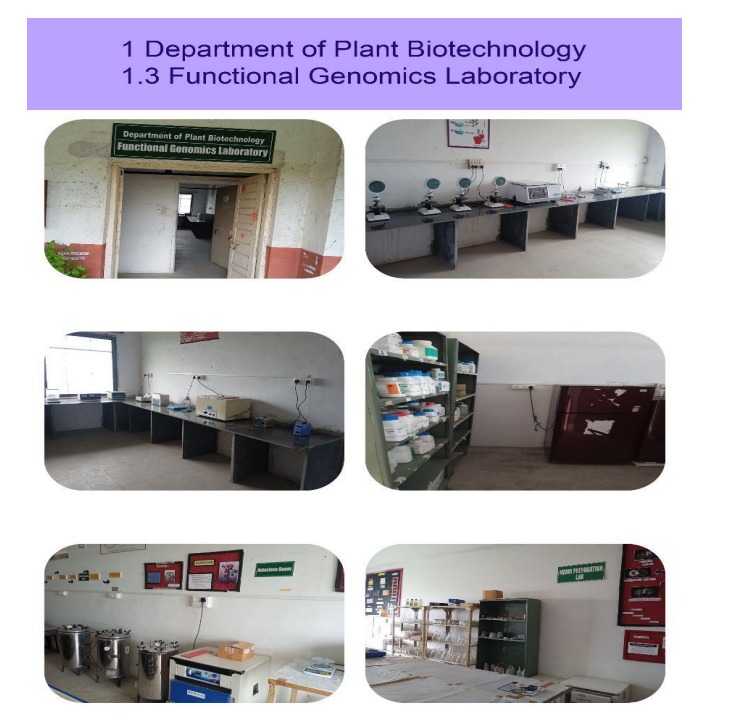Plant Tissue Culture
Head of Department: Prof. Ingale A.Y
Designation: Assistant Professor
About Department:
Plant tissue culture broadly refers to the in vitro cultivation of all plant parts under aseptic conditions. The laboratory in which tissue culture techniques are performed must have following facilities: A general washing area and media preparation, sterilization, and storage area. An aseptic transfer area.
Plant Tissue Culture at Aditya Agricultural Biotechnology College
Overview
Plant Tissue Culture is a powerful technique that allows the growth and development of plant cells, tissues, and organs in controlled, sterile environments. This field plays a crucial role in modern plant breeding, conservation, and crop improvement. It is an essential tool in agricultural biotechnology, enabling the mass propagation of plants, the development of disease-free plant material, and the conservation of rare or endangered species. At Aditya Agricultural Biotechnology College, our Plant Tissue Culture program equips students with advanced knowledge and hands-on experience in this vital biotechnology technique.
Key Areas of Study
The Plant Tissue Culture program at Aditya Agricultural Biotechnology College covers various aspects of plant growth, development, and manipulation using tissue culture techniques. Key areas of study include:
- Basic Techniques in Plant Tissue Culture: Understanding the principles and methodologies of tissue culture, including media preparation, sterilization techniques, explant selection, and aseptic culture techniques.
- Micropropagation: The process of rapidly propagating plants from small tissue samples (explants) to produce large quantities of genetically identical plants for commercial agriculture and horticulture.
- Somatic Embryogenesis and Organogenesis: Techniques for inducing the formation of embryos or organs from somatic (non-reproductive) cells, which are important for plant regeneration, breeding, and the production of new plant varieties.
- Cryopreservation: The preservation of plant genetic material, such as seeds, tissues, and embryos, at low temperatures, ensuring the long-term conservation of valuable plant species.
- Genetic Transformation and Cloning: The use of plant tissue culture in conjunction with genetic engineering techniques to produce genetically modified plants with desired traits, such as resistance to pests, diseases, and environmental stress.
- Secondary Metabolite Production: The use of plant tissue culture for the production of bioactive compounds, such as alkaloids, flavonoids, and essential oils, which have medicinal, agricultural, and industrial applications.
Research and Innovation
The research at Aditya Agricultural Biotechnology College focuses on the innovative application of plant tissue culture techniques in various areas, including:
- Crop Improvement: Using tissue culture to enhance traits in crops, such as increasing yield, improving resistance to diseases, and enhancing nutritional content.
- Plant Disease Resistance: Developing disease-resistant plant varieties by using tissue culture in conjunction with genetic modification techniques.
- Plant Conservation: Utilizing tissue culture to conserve endangered or rare plant species, allowing for the preservation of genetic diversity and restoration of species that may be threatened by environmental factors or human activities.
- Bioreactors for Metabolite Production: Investigating the use of plant cell cultures in bioreactors for the large-scale production of valuable secondary metabolites and pharmaceuticals.
Students participate in hands-on laboratory work and research projects that contribute to the development of new tissue culture-based techniques and their application in solving agricultural and environmental challenges.
Career Prospects
Graduates of the Plant Tissue Culture program can pursue careers in plant breeding, agricultural biotechnology, environmental conservation, and research. Potential career paths include:
- Plant Tissue Culture Specialist
- Research Scientist in Crop Improvement
- Biotechnology Product Development Specialist
- Plant Conservation Biotechnologist
- Genetic Engineering and Cloning Expert
- Laboratory Technician in Agricultural Biotechnology Companies
- Horticulturist and Nursery Manager


